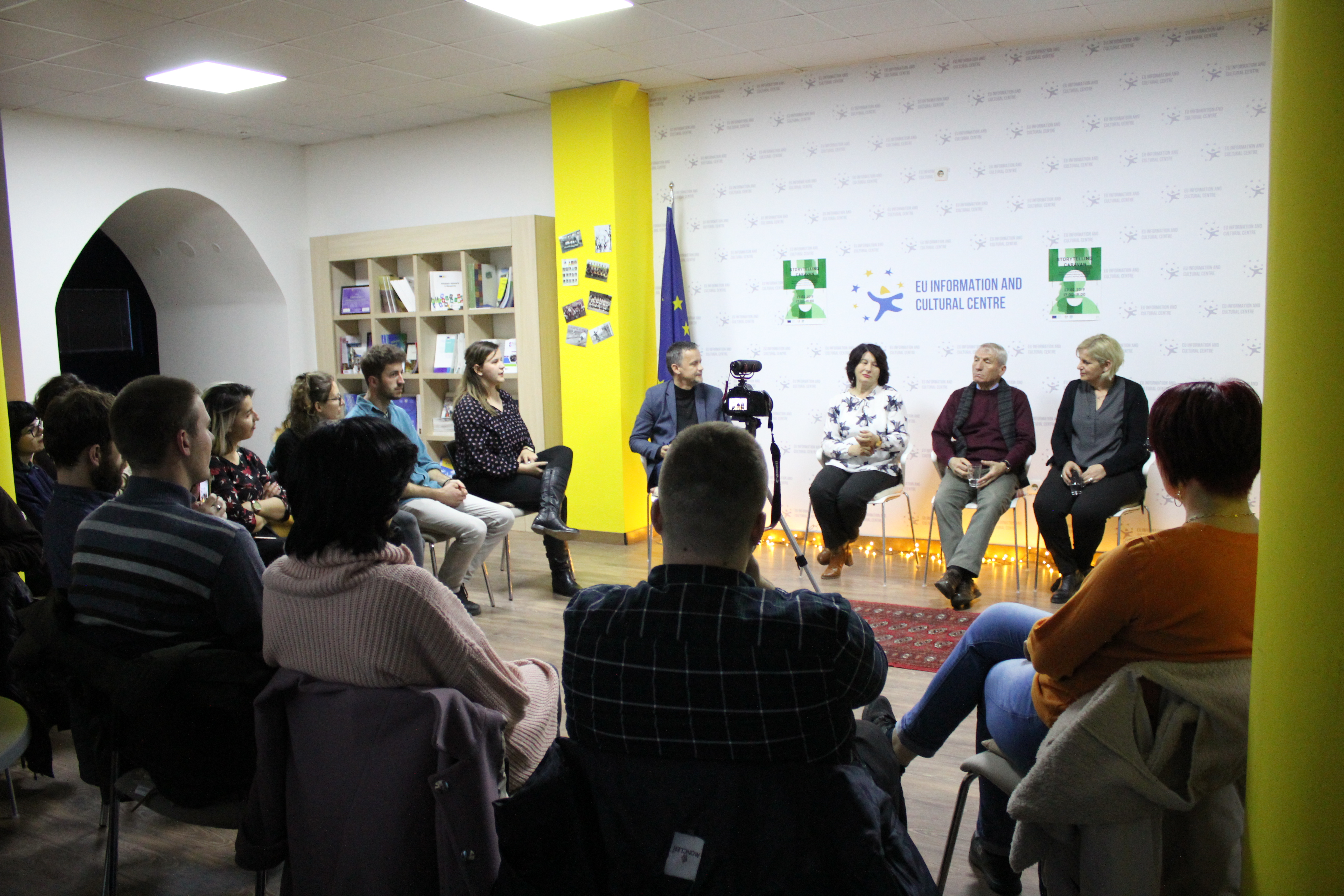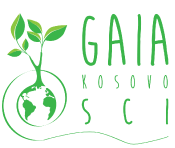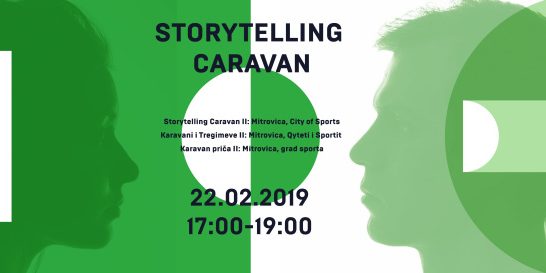From the Ancient Olympic Games to the next Football World Cup, sports have always had a tremendous importance in our civilizations. From the kids playing ball in a remote field to a renown professional champion, sport is an adventure that no one escapes from. It shapes who we are, as individuals and as groups of people. We go to the stadium, dress in the colours of our club, scream and cry, chant and cheer, to support our team. Because sports are a matter of “us”, of togetherness, of encounters and friendship. Mitrovica has been associated with the world of sports for a long time now. On Friday 22 February, we wanted to hear more about this particular history by asking the ones who made the city of sports, by playing with its colours for decades.

“It is always a special feeling to talk about sports” started Zumra Kabashi. A player of basketball since primary school, she chose this sport because it was popular at the time. But over time, it became more than just a trend for her. She continued playing for a very long time. “I should thank myself”, she said when she noted that she was part of a winning team, which brought great results back home. She is not active anymore, but she still watches basketball, as a tribute to her long-lasting passion.
Lindita Haxhimehmeti, born and raised in Mitrovica, also expresses how it is a “special emotion” for her to come and talk in front of our audience, mostly because she was never asked before to do so. She then happily explains her relationship with sports. There was this match in 1982, the finale of the Football World Cup opposing Germany to Italy. She watched it with her family. She could feel the thrill, the tension, the connection between players. This match 37 years ago changed her life. From this moment, she wanted to be part of this world of sports. She’s been an active player of handball since this same year.
As for Ajet Shosholli, more used to speak in front of crowds and cameras, we still heard the same beginning of the story. He started to play football for Trepça/Trepča at 12 years old. He ended his player’s career at 27, but quickly became a coach, most of the time for his cherished first team. He did not have a break since. Football has always been his only job and his all life. To this day, his biggest pleasure as a coach remains when he brought his team to rank first in the Yugoslavian First Federal League. “It was a historic moment” he reminded us.

Storytellers: Zumra Kabashi, Ajet Shosholli and Linda S. Haxhimehmeti
Trepça/Trepča was one of the biggest teams in Yugoslavian football. The team holds a record: it was never excluded from the League for 28 years. From those times, Mitrovica has a reputation of being a major city for sports teams, and it is still perceived like this. There are clubs for many sports, from handball to football, from basketball to gymnastics. Though our speakers regret that the spirit of sports’ practices has changed, today more about money and image, they still get pride in being part of an amazing adventure linked to their city and their own passion.
Zumra remembers one particular match of basketball against the team of Fushë Kosova/Kosovo Polje because of its “fantastic atmosphere”. A lot of girls from different places and different communities composed the two teams, and it was fascinating to ask everyone where they were from. “No one cared about the others’ nationalities”. Lindita has a very similar important memory, one about the time her team participated in a Yugoslavian tournament, and had the opportunity to play against people from Serbia, Slovenia, Croatia, etc. And playing against them was often an opportunity to meet and learn about them. Sports was always for them a way to meet new people, different people, to have a laugh or a serious discussion. It was also an excuse to travel around, to discover other countries. Ajeti is proud to have collaborated with other renown coaches from all around the Balkans, and to have played with Serbs.
This idea was of course confronted to today’s situation, where teams are not mixed anymore, and where politics invaded even the sports fields as someone from the audience mentioned. But “people who really feel like sportspersons should close eyes on politics” as said Zumra. There should be no room for conflict and racism in such universal activities. When Fadil Vokrri died last year, Ajeti told us, people from the whole region came. There are no borders when you admire a player. He wanted nonetheless to stress out that politics infiltrated more the groups of supporters than the players. Athletes mostly do not care about this, and want to live by their passion, which implies having mutual respect with other teams. Teams do not fight, only some supporters do. Zumra stated that in their time people were playing all together, and there were no problems. Her son is now playing handball in a German team, rich with different nationalities. “If it is possible there, it is possible here”.
Our speakers were framed by two columns full of old photographs provided by the City Museum. Sadly, an observation is unavoidable: there are only men, all playing football. This particular sport and this gender of players already dominated the sports world at the time, as it still does today. This raised the question from the audience, as we had two female players speaking: what was it to be a female player back then? Zumra contended that she never really felt discrimination at first, as there were female and male clubs alike in the different places she played. She started to feel discrimination more recently, as men became more and more prioritized in sports. Lindita told us that the person who made her do sports was her mother. Her family has always been supportive. It made sense to everyone around her that a woman could and should do sports. “I have no barriers” she said, implying that age is also not a limit. As long as you want to play, you can and you should.
A female alpinist from the audience shared her thoughts on this, saying that she also started to feel discrimination in the sports she practices, whereas it makes no logical sense to her. She and our speakers felt that young people are getting further and further from the world of sports, focusing more on trivial and materialistic things. All felt that we need to encourage better physical education, and more active practice of sports for people of all ages. Not just for health, not just for the sake of keeping ourselves busy, but because, as we learned through these stories, sports is an eternal way to meet, discover, exchange, travel, build friendships and understand more about the world. For our three speakers, and for a lot of other people throughout the globe, sports are a way to live wonderful collective adventures. From a weekly match with friends to an Olympic competition, playing sports brings us together, and makes us better persons. Everyone reached the conclusion that we should encourage everyone to start running, climbing, swimming and hitting balls together. They hope that this kind of events can inspire people to follow their path, one that they are proud of.
Written by Jeremy Flauraud
‘Storytelling Caravan II: Mitrovica, city of sports’ was the second event of the project “Mitrovica’s Joint Story”. This project is financed by the European Union, through the project Divided Past-Joint Future with OKC as leading applicant and organized by GAIA Kosovo. Three monthly events will follow, on different topics exploring our experiences of Mitrovica.
The content of this article does not reflect the official opinion of the European Union. Responsibility for the information and views expressed in the article lies entirely with the author(s).







